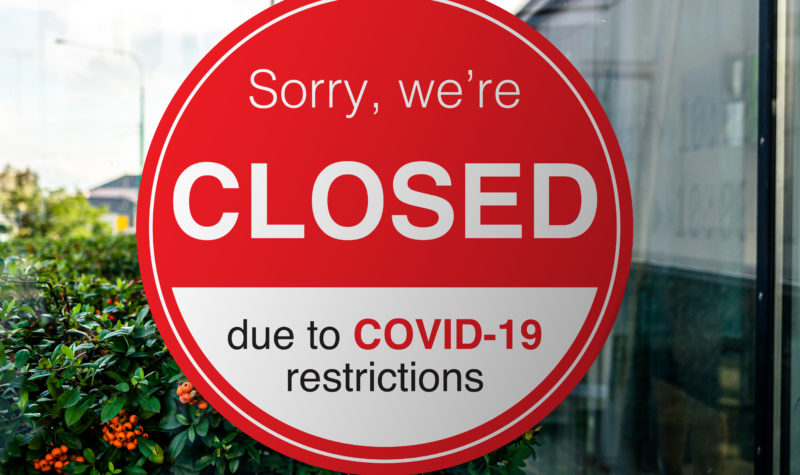Mark Watson-Mitchell: Reflecting on the last six months

On Tuesday 24 March this year we had just suffered one of the worst days of market price drops this year.
All was doom and gloom and investors were not only shocked but also running scared.
The trumpets, the walls and the soothsayers
As has happened so many times before, when such exogenous forces hit our equity market, the media were sounding their trumpets to collapse the walls of the City and its idols of Mammon within.
Almost instantly the various indices were forecast by the soothsayers to almost wither to nought.
Financial Armageddon 2020 was their prediction.
However, as in life, everything gets overplayed. We have not all died, although there have, alas, been casualties along the way. Certainly, personal wallets and bank accounts may well have been rent asunder.
Now, I am not clever nor prescient, but I have seen a few similar times since I went to work in the markets in 1963 – in fact, the subsequent calamities, wars, catastrophes, even power crises have painfully come and gradually gone.
Admittedly, for a short time their effects can create some drastic impact, but just like a bruise from a fall, over time they fade into history and are forgotten.
Out of the window
After a wonderful run-up in the market and the prices of various of my profile stocks in the first three months of this year – it all suddenly went into reverse.
The hit that most of those companies took as their businesses were virtually closed or slimmed down over the following three months has knocked for six all previous revenue and profit estimates.
Devastated estimates and new ratings
Suddenly we were having to look at a different way of rating, of valuing companies. We had to look for and define such figures not for the next six months or so but instead for the next eighteen months and beyond – effectively writing off the devastation to previous estimates and with them the corporate results for 2020.
Now we also need to look at the balance sheets, the borrowings, the monthly burn rate, the announcement of new orders and contracts. Then we must assess the ability of management to cope with the ongoing Covid-19 hassles and the actual marketplaces in which those profile companies are trading.
All ‘up and down’, ‘up and down’
Although we would all love to have markets going steadily in one direction – the tone that suits us – that rarely happens.
Absolutely nothing in life goes in a straight line – just like love, money, bank accounts, they all go up and down. And so too our UK equity markets.
That creates opportunities for those fleet of foot and deep of pocket.
My recovery portfolio
That day in March I created for Master Investor readers my Covid-19 Market Recovery Portfolio of ten stocks – companies that I had previously profiled and considered able to weather the ensuing virus storms, hoping that their prices had upside potential, thereby enabling readers an opportunity to see some recovery in values.
Good performers?
Since then the ten stocks, after having been up over 54% at one stage, have put in a very good performance, closing last Friday night at 44% up over the last six months.
The best performer was Capital (LON:CAPD), the drilling rig and mining services group, which was up 120% at 76p (34.5p).
Second best at 94% up was Strix Group (LON:KETL), the kettle safety controls maker, at 237p (122p).
Coming in bronze position was Sureserve Group (LON:SUR), the compliance and energy support services business whose shares put on 63% at 50.5p (31p).
My favourite packaging solutions maker MPAC Group (LON:MPAC) was fourth with a 62% appreciation at 299p (185p).
Next was Ramsdens Holdings (LON:RFX), the pawnbroking/jewellery/foreign exchange financial services group, which improved 49% over the six months to 127p (85%).
Followers-up took in:
Billington Holdings (LON:BILN), the structural steel fabricators, up 26% at 306p;
brownfield property developers Inland Homes (LON:INL), at 49.5p (41p) almost 21% better;
TClarke (LON:CTO), the construction services contracting group, up just 13% at 80.5p (71p);
Finsbury Food Group (LON:FIF), the bakery outfit, disappointingly only 3% better at 56.5p (55p);
and finally The Rank Group (LON:RNK), the casinos and gaming concern, at 6% down with its shares closing the six months at 91.5p (97p), despite having been 179p at one stage.
Performance against the FTSE 100 Index
On Tuesday 24 March the FTSE 100 stood at 5446.01. Last Friday night it closed at 5842.67, which showed only a 7.28% improvement in the same period.
So where is this market going now?
I am actually fairly bullish about the London market, seeing the FTSE100 rising back up above the 6000 level within days, then nudging progressively towards 6250.
There will, undoubtedly, be thrills and spills along the way, especially the closer that we get to the Brexit negotiations reaching a conclusion, and then with whatever may ensue.
Also, we have the US Presidential Elections in November to concern us, as far as how the markets will perform.
Even so, with this new version of lockdown in the UK to contend with, I just hope that British business will be creative in its ways to counter a further fall-off in sales and profits. It remains imperative to maintain people in their jobs and businesses large and small must be encouraged to strive and survive.
I remain confident that the UK equity market will end the year higher, hopefully very much higher, than it is today.
Stay vigilant and keep to your normal investing principles, be wary of the ‘fast buck specials’ and continue to seek out value.
Here is to the next few months – cheers.
Comments (0)